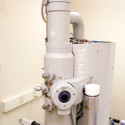Support swells for vital university research using fetal tissue and cells
Nearly 1,000 scientists and staff at the University of Wisconsin–Madison joined a growing chorus of objections to a state proposal to ban the use of fetal tissue in life-saving biomedical research by signing a letter opposing the legislation.
“The legislation in both the Assembly and Senate criminalizes the use of fetally-derived tissue, cells or cell lines in research that aims to improve the lives of Wisconsin citizens and the lives of people around the world,” says the letter, authored by three UW–Madison scientists.
The scientists, Anita Bhattacharyya of the Waisman Center and Amie Eisfeld and Pete Halfmann, both from the Department of Pathobiological Sciences, shared the letter across campus and it was signed by at least 975 supporters.
“If passed, the legislation would severely restrict promising avenues of biomedical research for conditions such as diabetes, Down syndrome, heart failure, Parkinson’s disease, spinal cord injury and more. Furthermore, the bill would make felons of the scientists who use fetal tissue to find therapies for disease,” the letter says.
Another 200 in academia throughout the state recently signed a similar resolution critical of the legislation.
The university’s medical school dean applauds the support.
“We are extremely grateful and encouraged by the growing groundswell of support from so many people on our campus, at our sister universities across the UW System, and in communities throughout the state who want to protect the use of fetal tissue for potentially life-saving research,” says Robert N. Golden, dean of the UW–Madison School of Medicine and Public Health.
Legislation gains traction
Legislative committees in the Wisconsin State Senate and Assembly this year approved separate but similar bills prohibiting the use of fetal tissue and cell lines in research but they were not taken up on the floor of either the full Senate or Assembly. Both houses may consider these bills when legislators return for the next floor session in January. A revised proposal allows for research using existing cell lines.
The legislation, proposed in previous years, received renewed traction this year following the release of videos, secretly filmed by anti-abortion activists, showing Planned Parenthood officials discussing the sale of tissue from aborted fetuses. (UW–Madison scientists who use fetal tissue obtain it from tissue banks that follow state and federal laws.)
Planned Parenthood has denied any wrongdoing and a number of states’ attorneys general – including Ohio, Florida, Missouri and Washington – cleared the agency of illegal activity. Donating fetal tissue from abortions is legal as long as the woman gives consent beforehand and no profit is made.
Several bills pending in Congress also would ban the transfer of fetal tissue for research purposes.
But the backlash against such legislation has grown around the country too, as more and more researchers looking for life-saving cures and patients suffering from debilitating diseases come forward to argue that banning research using fetal tissue will halt promising medical studies.
Earlier this month, 48 top medical research universities, including UW–Madison and the Medical College of Wisconsin, and 10 medical organizations endorsed a letter from the Association of American Medical Colleges urging lawmakers to support this important research and reject proposals that restrict the use of fetal tissue in research, while also endorsing strong ethical practices.
Therapies would become illegal
Around the world, research using fetal tissue and cells could lead to therapies for a wide range of diseases including neurological disorders (ALS, Parkinson’s disease, spinal cord injuries), adverse pregnancy outcomes (miscarriages, pre-eclampsia), immune rejection (graft-host disease) and heart disease (cardiac arrhythmias), the letter by the UW–Madison scientists says.
If these therapies prove to be successful and involve the use of fetal cells, patients in Wisconsin would not be allowed to take advantage of them as their physicians could not legally provide the treatment in Wisconsin, the letter continues. These patients would be forced to leave the state to seek these promising new treatments.
The letter was written and circulated following a resolution opposing the legislation that passed in September by the UW–Madison Academic Staff Assembly, which represents more than 8,300 campus employees.
The UW–Madison University Staff Congress also passed a resolution this fall objecting to the legislation, citing “the vital work in areas of medical research” that would be halted. The Congress represents about 4,670 university staff, according to Russell T. Kutz, chair of the University Staff Executive Committee.
The resolution also was signed by representatives of staff at sister universities in Whitewater, Milwaukee, Stout, Platteville, River Falls, Superior and Parkside. Those signees represent thousands of public higher education staff across the state, Kutz says.
The UW–Madison Faculty Senate earlier this fall also passed a resolution opposing the legislation. In addition, more than 700 campus faculty members signed a letter to the editor in August explaining the benefits of research using fetal tissue.
—Tim McGlone
More information and coverage of the use of fetal tissue in research
Tags: research, state relations, stem cells



